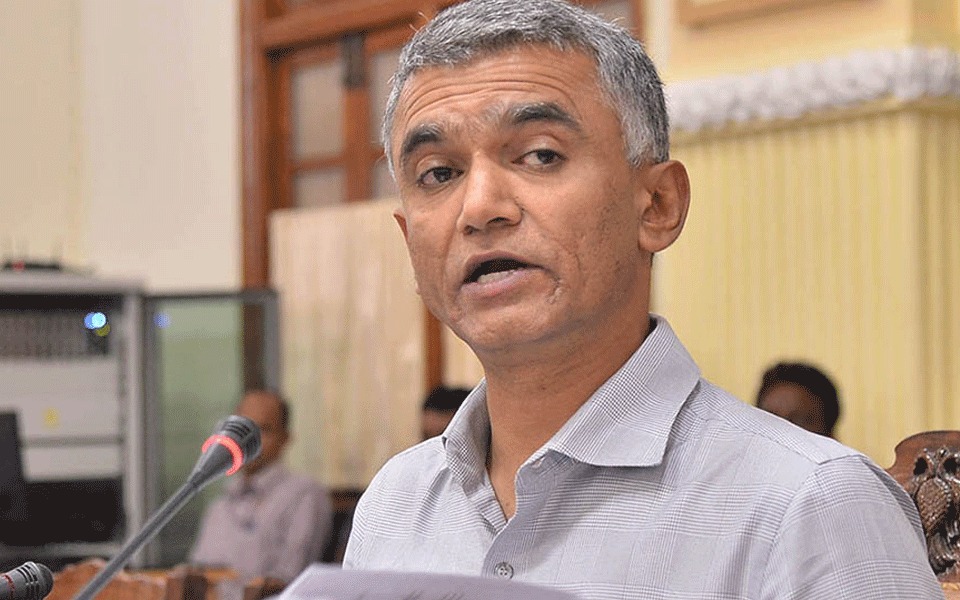Bengaluru: In a move aimed at simplifying land-related processes for citizens, the Karnataka government is developing a Unified Land Management System (ULMS) — a digital platform designed to consolidate all land-related procedures under one paperless system. Once implemented, citizens will no longer need to visit multiple departments to get their work done.
All immovable properties in the state will be integrated into the ULMS, which is currently under development. According to a recent government order cited by Deccan Herald on Wednesday, four hundred officials in the Department of Town and Country Planning will be trained on handling the new technology platform. The platform will unify all land-related databases of the government, including those related to survey, settlement and land records (agricultural land), town planning approvals, Kaveri (property registration), and e-Aasthi (khatas).
Calling ULMS a “start-to-end solution” for land administration, Revenue Minister Krishna Byre Gowda said the system will ensure smooth coordination between departments. “A piece of land, from its origin till it is made into a site or becomes a property, will travel within ULMS from one department to another,” he explained. While the concept isn’t entirely new, Gowda noted, “a serious effort was never made. We are doing it seriously now.”
"Any property can be brought into existence and defined only by the survey department. From there, it goes to the revenue department if there is conversion required. If an approval is needed to form a layout, it goes to town planning. If one wants to sell land, it goes to Kaveri. From there, it goes to the local body for khata," DH quoted Gowda as saying.
"Things will move from one stage to another automatically. There will be no file movement. You don't have to go knocking on several doors to get one work done," he added.
Gowda emphasised that the initiative is focused on improving citizen experience. “The first aim is to make governance easy and reduce delays for citizens. This can also reduce the scope for frauds. Fewer frauds mean lesser litigation, and that ultimately translates to lower costs for citizens,” he said.
Meanwhile, the government has ordered the release of Rs 2 crore to train officials on Geographic Information System (GIS). This was announced by Chief Minister Siddaramaiah in his 2025-25 Budget.
Let the Truth be known. If you read VB and like VB, please be a VB Supporter and Help us deliver the Truth to one and all.
New Delhi (PTI): Star batter Smriti Mandhana, who played a pivotal role in India's historic 2025 Women's World Cup triumph, was named the BBC Indian Sportswoman of the Year for 2025 at a glittering function here on Monday.
Chess prodigy Divya Deshmukh won the Emerging Player of the Year award, for her historic FIDE Women's World Cup triumph at just 20.
Preethi Pal was named the Para-Sportswoman of the Year, for winning two bronze medals at the 2024 Paris Paralympics in track and field, while Anjali Bhagwat was honoured with the Lifetime Achievement Award, recognising her pioneering career as India's first woman shooter to reach an Olympic final and her trailblazing success on the world stage.
Mandhana, who is currently touring Australia with the Indian team for multi-format bilateral assignments, said in a video message: "Thank you BBC for giving me the awardfor Best Sportswoman of the Year. 2025 was a special year for women's cricket, especiallytowards the end we had a World Cup and I'm happy I could contribute and help India win matches.".
At 29, the left-handed batter is already among the game's greats, with the second-highest number of centuries in women's One Day Internationals and ranking third in total runsscored among current players worldwide.
Hailing from Sangli city in Maharashtra, the affable Mandhana was inspired by her father and brother, both of whom played cricket at the district level.
In September last year, she made a 50-ball hundred against Australia – the fastest 50 over international ton (men and women) by an Indian in the format, breaking Virat Kohli's record.
The award winners were decided by a distinguished grand jury comprising Leander Paes, Deepa Malik, and Anju Bobby George.
Praising the athletes' achievements CEO of BBC News, Jonathan Munro said: "Congratulations to this year's winners who showcase the very best in sporting excellence. The BBC World Service is committed to bringing such stories of human endeavour and outstanding success to audiences across India and around the world.".
Additionally, the ceremony also celebrated a wide spectrum of talent and impact, recognizing star performers and changemakers for redefining the landscape of Indian sport.
BBC Star Performers of the Year 202.
• Indian Women's Cricket Team: for their historic World Cup victory.
• Ekta Bhyan, Deepthi Jeevanji and Preethi Pal: for their trailblazing performances at the World Para Athletics Championship.
• Indian Women's Cricket Team for the Blind: for their inspiring World Cup victory.
• Indian Women's Kabaddi Team: for their smashing victory in World Cup.
.
BBC Changemakers of the Year 202.
• Indian Women's Ice Hockey Team: for breaking barriers in a non-traditional sport.
• Rajbir Kaur: Indian field hockey player and former captain of the women’s national team.
• Savita Punia: Indian field hockey player and current member of the national team.
• Paani Devi: recognised for her impactful contribution to grassroots sport.





